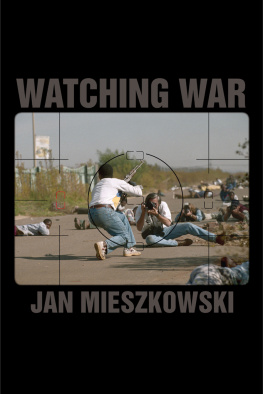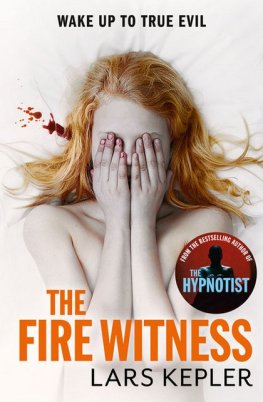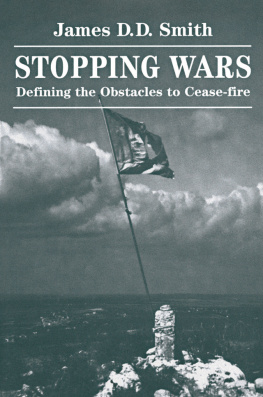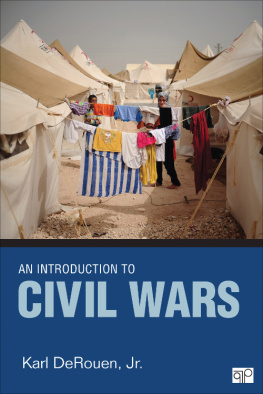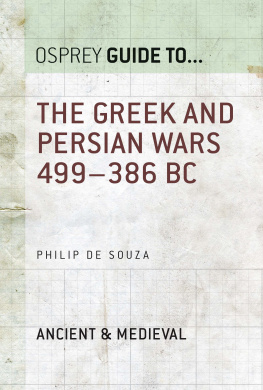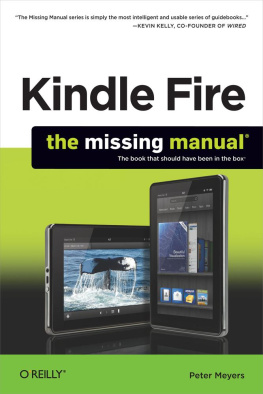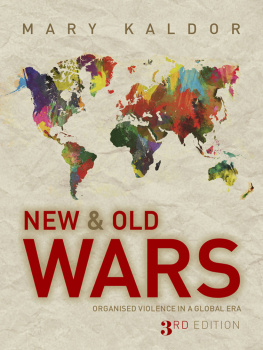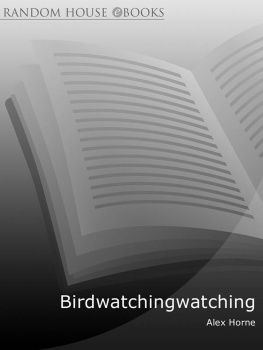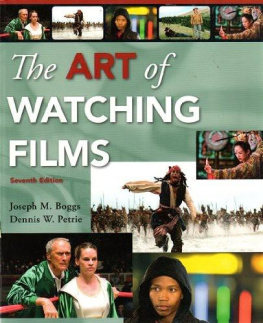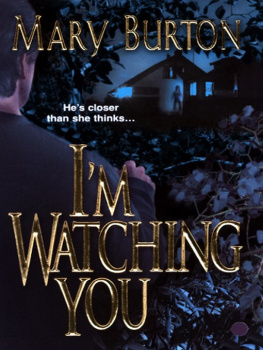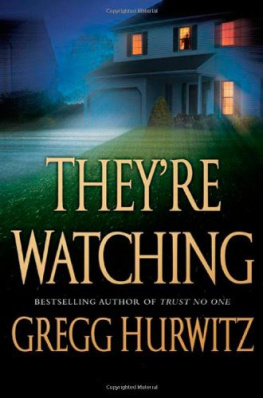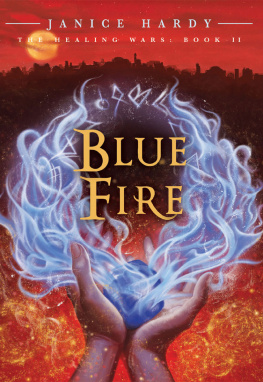Mieszkowski - Watching War
Here you can read online Mieszkowski - Watching War full text of the book (entire story) in english for free. Download pdf and epub, get meaning, cover and reviews about this ebook. City: Stanford;Calif, year: 2012, publisher: Stanford University Press, genre: Politics. Description of the work, (preface) as well as reviews are available. Best literature library LitArk.com created for fans of good reading and offers a wide selection of genres:
Romance novel
Science fiction
Adventure
Detective
Science
History
Home and family
Prose
Art
Politics
Computer
Non-fiction
Religion
Business
Children
Humor
Choose a favorite category and find really read worthwhile books. Enjoy immersion in the world of imagination, feel the emotions of the characters or learn something new for yourself, make an fascinating discovery.
- Book:Watching War
- Author:
- Publisher:Stanford University Press
- Genre:
- Year:2012
- City:Stanford;Calif
- Rating:5 / 5
- Favourites:Add to favourites
- Your mark:
- 100
- 1
- 2
- 3
- 4
- 5
Watching War: summary, description and annotation
We offer to read an annotation, description, summary or preface (depends on what the author of the book "Watching War" wrote himself). If you haven't found the necessary information about the book — write in the comments, we will try to find it.
Watching War — read online for free the complete book (whole text) full work
Below is the text of the book, divided by pages. System saving the place of the last page read, allows you to conveniently read the book "Watching War" online for free, without having to search again every time where you left off. Put a bookmark, and you can go to the page where you finished reading at any time.
Font size:
Interval:
Bookmark:
Watching War
Jan Mieszkowski
Stanford University Press
Stanford, California
Stanford University Press
Stanford, California
2012 by the Board of Trustees of the Leland Stanford Junior University. All rights reserved.
No part of this book may be reproduced or transmitted in any form or by any means, electronic or mechanical, including photocopying and recording, or in any information storage or retrieval system without the prior written permission of Stanford University Press.
Printed in the United States of America on acid-free, archival-quality paper.
Library of Congress Cataloging-in-Publication Data
Mieszkowski, Jan, author.
Watching war / Jan Mieszkowski.
pages cm
Includes bibliographical references and index.
ISBN 978-0-8047-8239-5 (cloth : alk. paper)
ISBN 978-0-8047-8240-1 (pbk. : alk. paper)
ISBN 978-0-8047-8501-3 (e-book)
1. War in literature. 2. War in mass media. 3. Mass mediaAudiences. I. Title.
PN56.W3M54 2012
303.6609dc23
2012005968
Typeset by Westchester Book Group in 10.9/13 Adobe Garamond
To Sarah
Contents
Illustrations
Ac knowledgments
Many people have offered important advice and criticism at various stages of this project. I am particularly grateful to Benjamin David, David Ferris, Patrick Greaney, Werner Hamacher, Hugh Hochman, Jocelyn Holland, Edgar Landgraf, Jacques Lezra, Michael Mirabile, Haun Saussy, and Rei Terada. I would also like to thank the participants of the 2006 Bloomington Eighteenth-Century Studies Workshop at Indiana University, the editorial board of PMLA, who oversaw its October 2009 special issue on war, and the audiences at lectures I delivered at the University of Colorado at Boulder and the University of California at Santa Barbara. Completion of the manuscript was supported by a fellowship from the National Endowment for the Humanities, whom I thank for sharing their anonymous reports on my research. I finished the book while a Visiting Scholar at the Clark Library at UCLA, where Kirstie McClure and Sianne Ngai extended me warm hospitality. Final work on the text was guided by the insightful suggestions of Rebecca Comay and Paul K. Saint-Amour in their readers reports. At Stanford University Press, Emily-Jane Cohen, Sarah Crane Newman, and the entire staff brought their considerable wisdom and expertise to bear throughout the editorial and production process. For her creativity, candid commentary, and support with all facets of the project, I am indebted to Sarah Roff, who will hopefully always have something better than war to occupy her discerning gaze.
Introduction
Watching War
At the opening of Michelangelo Antonionis 1975 The Passenger, journalist David Locke is pursuing fieldwork in the deserts of Chad for a documentary about a guerrilla war. Locke follows combat as a professional observer, someone paid to convey news from the Third World to the First. Speaking for a moment as a viewer of the film rather than an actor in it, Jack Nicholson, who plays Locke, describes the scene succinctly: This is the place where a war is taking place. This is a reporter trying to find it. The thesis of this book is that since the turn of the nineteenth century, we have all been in the same boat as Locke, tryingand failingto find the war. The dry joke that has been played out time and again is that as armed conflicts have assumed unimaginable proportions and we have all become potential spectators to the destruction, the greatest show on earth of modern militarism has failed to meet its audiences expectations by consistently underperforming as entertainment or shock or even as a forum that can reveal something essential about the human condition.
The spectatorial dynamic that has organized the experience of warfare over the past two centuries took shape in Napoleonic Europe, as military conflict acquired its unique status as a performance that everyone needed to follow. As early as 1789, Edmund Burke, a harsh critic of efforts to overthrow the House of Bourbon, offered his famous account of what it meant for the rest of Europe to be observing a civil war unfolding in a neighboring land: As to us here our thoughts of everything at home are suspended, by our astonishment at the wonderful Spectacle which is exhibited in a Neighboring and rival Countrywhat Spectators, and what Actors! England gazing with astonishment at a French struggle for Liberty and not knowing whether to blame or to applaud! In Burkes view, even if we do not know whether to celebrate or disparage the French struggle for liberty, we can still rejoice in the sight of it. The audience in this theater of world history was as aware of its own importance as a collective viewing entity as it was respectful of the significance of the show it was watchinga show, Burke stressed, in comparison to which ones own life would necessarily appear unremarkable. When he wrote that we do not know whether to blame or to applaud, he was referring both to the overthrow of the French monarchy and to the fact that France was offering his compatriots a gripping spectacle. In this realm of mass spectatorship, political events acquired their significance as much from their status as something to be consumed or ignored as from their consequences for the agents who effected them. In lauding both the audience and the actors, Burke underscored that the performance could be fully appreciated only from a gods-eye view that encompassed those on stage as well as onlookers in England and abroad.
If the French Revolution established the framework for this theater of world history, sustained warfare among the European powers would come to take top billing in the ensuing twenty years. Burkes sense that the emerging mass audience was conscious of its own significance as a witness to world affairs was intensified by the universalizing forces of the French revolutionary wars, which were formalized with the leve en masse of August 23, 1793, the proclamation on the basis of which all Frenchmen became part of the army.
The new notion of the citizenry as a conglomeration of individuals mobilized to wage war was paralleled by the equally novel idea that the populace was now united in its status as an audience viewing the conflict. For millions in Great Britain and across the Continent, government bulletins and the burgeoning newspaper industry offered an opportunity to monitor the campaigns via published reports, and reading about them became a part of daily life. Did these representations of combat enlighten, horrify, or stupefy their audiences?
These questions have proven intractable. Over the past two centuries, both scholars and pundits have engaged in a wide-ranging series of debates about whether human beings abhor or enjoy reading about and viewing the suffering of others, with warfarethe ultimate manmade disasterserving as the crucial test case. Since the Vietnam War, these conversations have only intensified as advances in telecommunications have offered media consumers a growing wealth of still and moving images of dead bodies and devastated cityscapes. Widespread access to such material has led to no consensus about whether military spectacles fascinate the mass audience, repel it, or simply distract people temporarily from their day-to-day concerns. As the archetype of sublimity, a battle ostensibly promises us a great deal to see, but modern viewers are neither sufficiently appreciative of nor sufficiently traumatized by the show, as if even the most extreme engagement with the combat can never be stimulating enough. Several years after the 2003 U.S. invasion of Iraq, movie and television news producers remained unanimous in their despair about the poor ratings that had been garnered by shows about the war; with little fanfare, the public had moved on to reruns of
Next pageFont size:
Interval:
Bookmark:
Similar books «Watching War»
Look at similar books to Watching War. We have selected literature similar in name and meaning in the hope of providing readers with more options to find new, interesting, not yet read works.
Discussion, reviews of the book Watching War and just readers' own opinions. Leave your comments, write what you think about the work, its meaning or the main characters. Specify what exactly you liked and what you didn't like, and why you think so.

